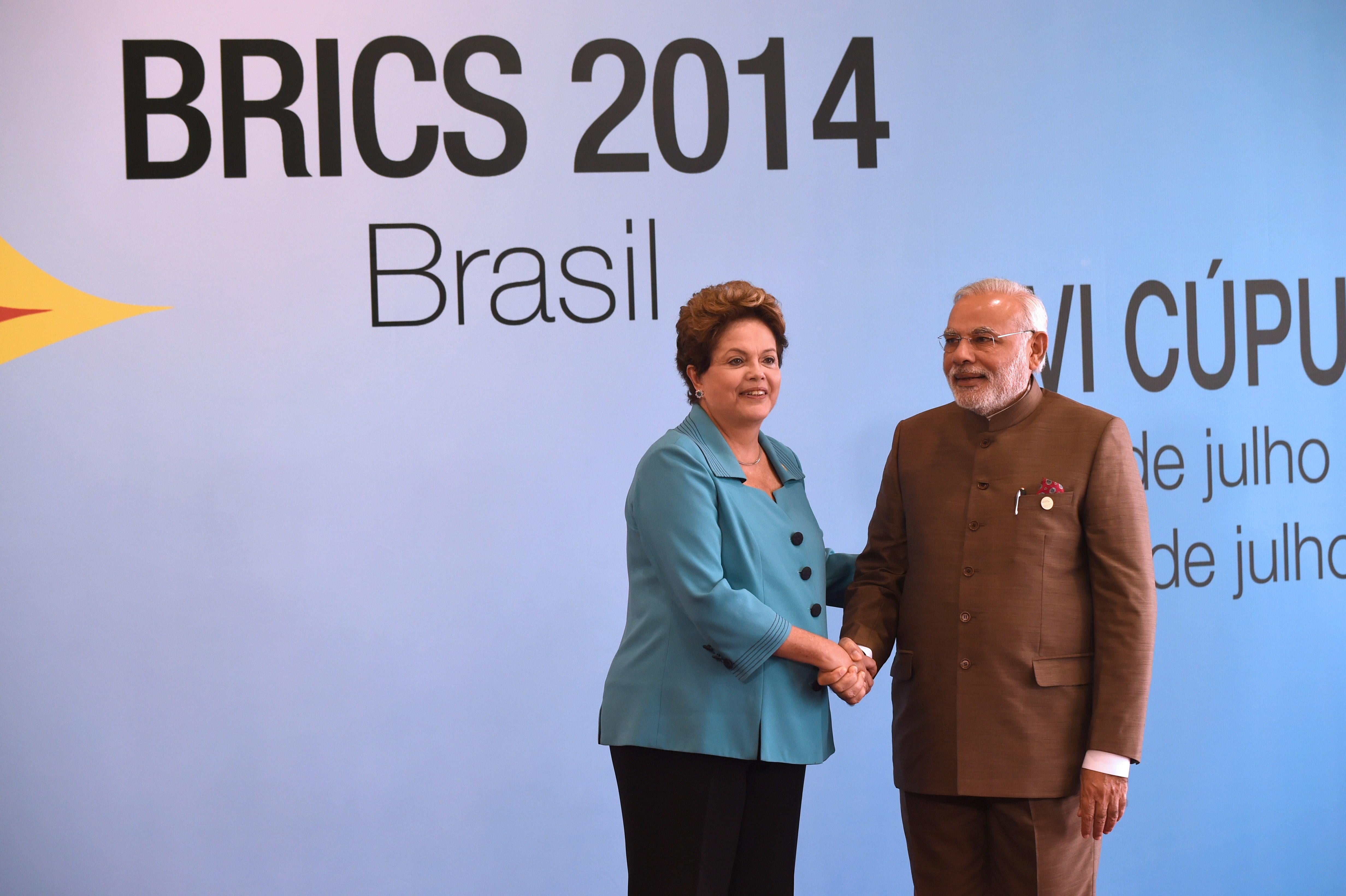The leaders of the BRICS countries—Brazil, Russia, India, China, and South Africa—are meeting for their sixth annual summit in Fortaleza, Brazil (in case you were wondering what Vladimir Putin was doing at the World Cup final).
The acronym BRIC was coined by Goldman Sachs analyst Jim O’Neill in 2001 to describe the emerging market powers. (South Africa wasn’t included in the original analysis.) Leaders of the countries took a shine to the idea and the first BRIC summit was held in Russia in 2009. South Africa was added to the club in 2011.
As I noted last year, the BRICS countries don’t actually make a whole lot of sense as a group. On the new Indian news site Scroll, Rohan Venkataramakrishnan shares “10 charts that prove the BRICS nations have little in common.” Indeed, the BRICS countries differ wildly in terms of political system, levels of economic growth, current development indicators, culture, and demographics. And treating them as if they’re the only game in town in terms of large developing economies ignores important developments in countries ranging from Mexico to Nigeria to Turkey to Indonesia. Even O’Neill isn’t that enthusiastic about the designation anymore.
All the same, while the idea of a key international grouping based on a now-outdated 13-year-old Goldman Sachs analysis is a little strange, the BRICS are here to stay, and playing an increasingly prominent role.
At this year’s summit, the big news is the creation of a new development bank, to serve as an alternative to Western-dominated institutions like the World Bank. The summit is also one of the first big international appearances for new Indian Prime Minister Narendra Modi, and his interactions with Xi Jinping of China will be closely watched in light of ongoing border disputes.
The BRICS are fast becoming one of the world’s more important and closelywatched multilateral institutions. Its membership may not make any sense, but it’s hardly alone on that score.
